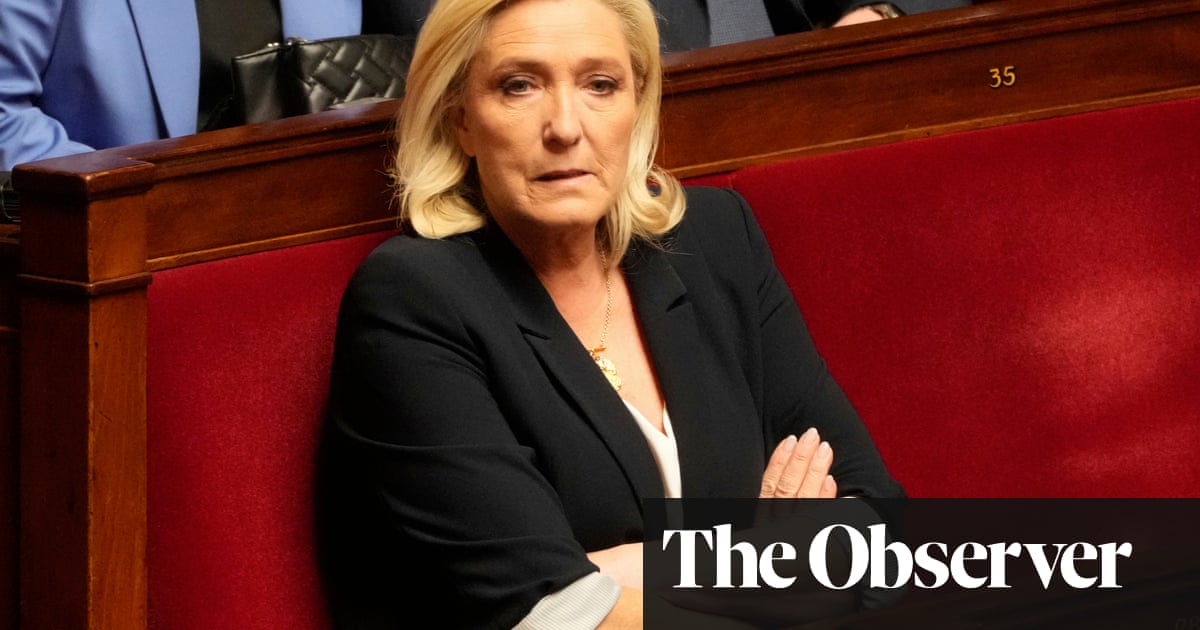Farmers fear they will no longer be able to afford to restore nature in England and reduce their carbon footprint after government funding for doing this was frozen.
The environment secretary, Steve Reed, recently announced that the sustainable farming incentive (SFI), which pays farmers for making space for nature on their land, would be paused and overhauled before June’s spending review. The scope of the scheme – and its budget – are being reassessed.
He is considering blocking farmers who make a lot of money from agriculture from applying for the scheme, which is part of a package of payments that replaced the EU’s common agricultural policy and paid land managers for the amount of land in their care, with the aim of paying farmers to look after nature, soil and other public goods, rather than simply for farming and owning land.
In England, 70% of land is farmed, so if nature is to recover, farmers need support to make space for it on their land. This includes planting trees and hedges, digging ponds and leaving strips of land for wildflowers.
Amelia Greenaway, 24, farms native cattle and pigs on 365 hectares (900 acres) of the National Trust’s Killerton Estate in Devon. She was applying for £94,000 worth of SFI payments when the application was frozen.
“We are already sustainable as we are organic. We have highland cattle and rare breed pigs which we conservation graze,” she said. But she wanted to go one step further.
“We were going to start growing our own pig feed to create a circular system in our farm, we were going to sow wildflowers in there as well, and it was going to be a good thing for pollinators. We now can’t afford the seed to do that,” she said.
It is hard for tenant farmers to apply for schemes as they have to work with the landlords. Greenaway had been working on her funding application for months – time that has been wasted. “The planning we have had to do over SFI has been immense,” she said. “This has seriously wasted our time. We had to do so many paperwork applications that delayed the process.”
She said farmers were giving up on the government to provide funding and solutions for nature, and had to accept they would need to do it themselves. “I hope this gives farmers the opportunity not to put their heads in the sand. We weren’t reliant on subsidy but it was great to have that cash boost we could reinvest. Not having the reinvestment will make us become a bit stagnant if the SFI doesn’t become available again.”
Greenaway says she is lucky to have a good landlord in the National Trust, which supports nature-friendly farming, but not all farmers are so fortunate: “Since the shocking news of SFI closure, it’s just reminded us of our gratitude towards the National Trust. Without the support of empathetic landlords who want to allow sustainable farming to be a viable business we wouldn’t be a sustainable business. I am very stagnant now, not moving forward with nature recovery. I have to count my blessings, but I have to look forward to the future and work even more closely with my landlords.”
She feared other farmers may be discouraged from nature-friendly farming: “I am really worried for the landscape actually; for those farmers who were considering going into regenerative farming, the chopping and changing has completely reduced confidence so it’s caused them to want to intensify instead.”
Anthony Curwen, 63, is the country estate manager of Quex Park in Kent, which grows wheat, oilseed rape, oats, beans, potatoes and maize silage across 1,012 hectares (2,500 acres) of arable land.
He applied for the SFI just before the application window closed, and has now been left in limbo.
after newsletter promotion
“It is just very shocking and surprising that it was withdrawn last week,” he said. “What we are doing is helping sustainable farming, pollen and nature strips. We don’t use insecticides, we plant cover crops. We have already started doing everything. We were hoping to get the money for doing it.”
Curwen has loved seeing nature come back to the farm. “I’ve noticed more insects, more birds. Lots of things were here 40 or 50 years ago and disappeared then came back. We’ve seen turtle doves come back to the farm, we’ve seen yellow hammers which I haven’t seen for a long time. It is joyous to see it all return.”
He is worried other farmers will not get this same opportunity: “We’ve been on this journey for several years, but the vast bulk of farmers don’t know what to do. They need persuasion, they need help. It will take a lot of rebuilding trust to hit government targets on biodiversity, carbon and soil regeneration. It is quite scary going on that route as it is very different to what they would have been doing.”
Curwen does not agree with the government’s plans to means test it, as it will encourage larger farms to intensify food production with more pesticides and less nature. “Who could say that nature doesn’t matter on a big farm? Nature matters on every farm. Many big farms may go in the opposite direction and intensify and that will hurt nature. It is trying to divide and rule to be honest with you.”
Despite using fewer pesticides and creating more space for nature, productivity has not reduced on his farm: “Less inputs and more circular farming actually give us more food security. This is all being put at risk because of the clumsy way this is all going on.”
He did not realise this would be the case to begin with, but now is a true convert and a member of the Nature Friendly Farming Network.
“I was sceptical of regenerative farming but we have now realised it makes a huge difference to everything around you,” he said. “I am in despair. I am just saddened as I think it is going to be harder now. I thought we were a world leader in this journey and now it’s all up in the air.”

.png) 11 hours ago
4
11 hours ago
4










































